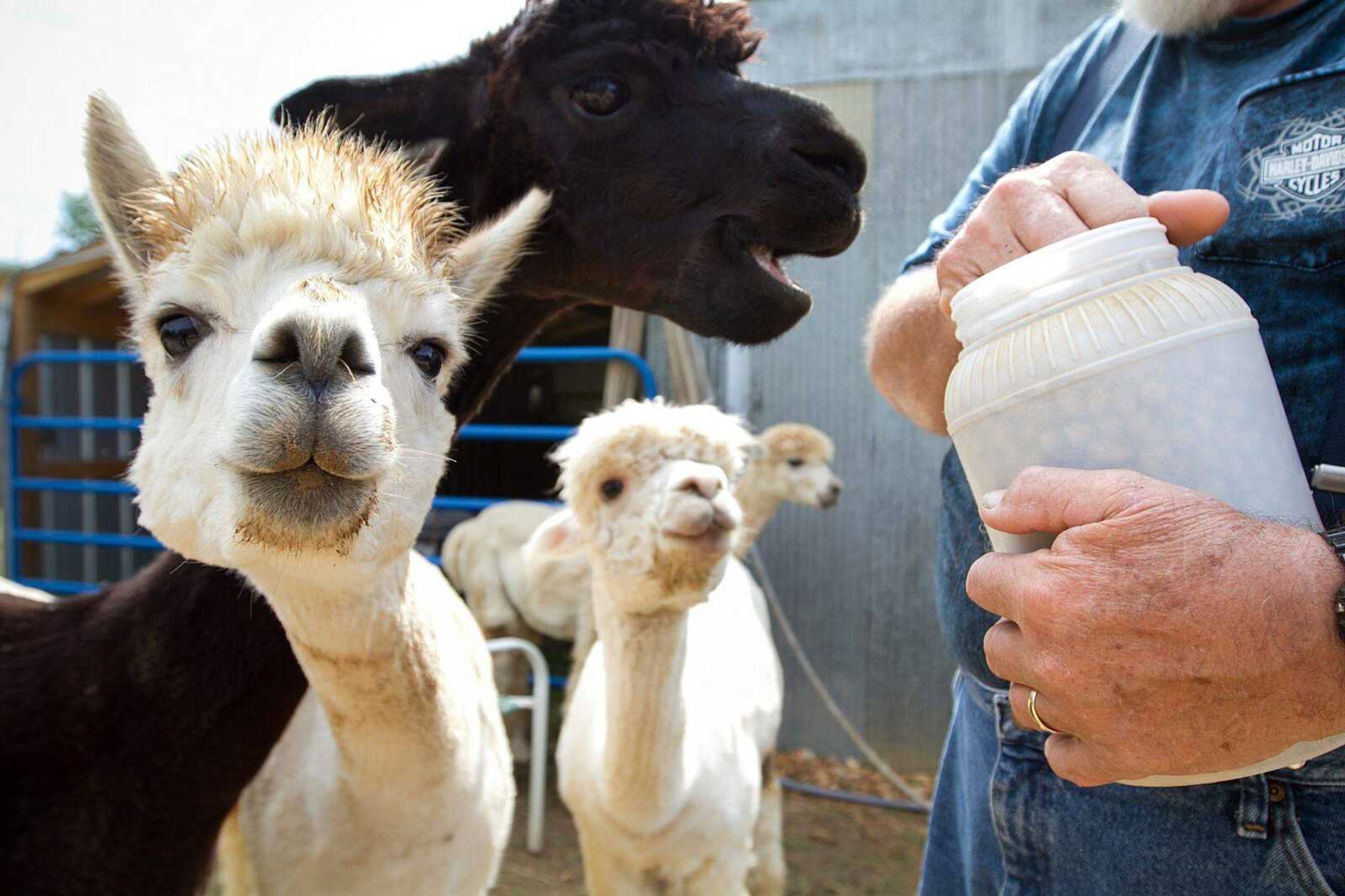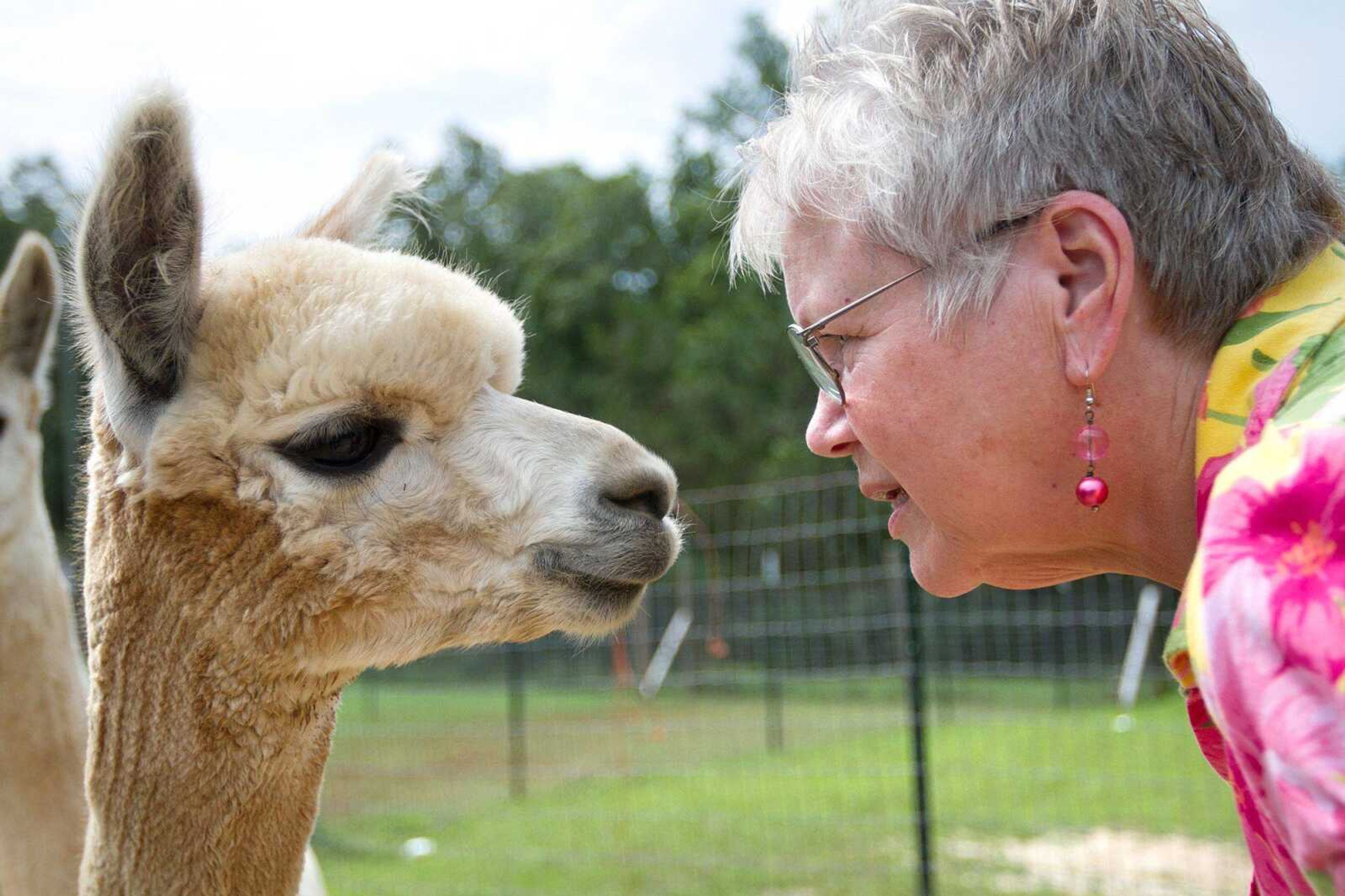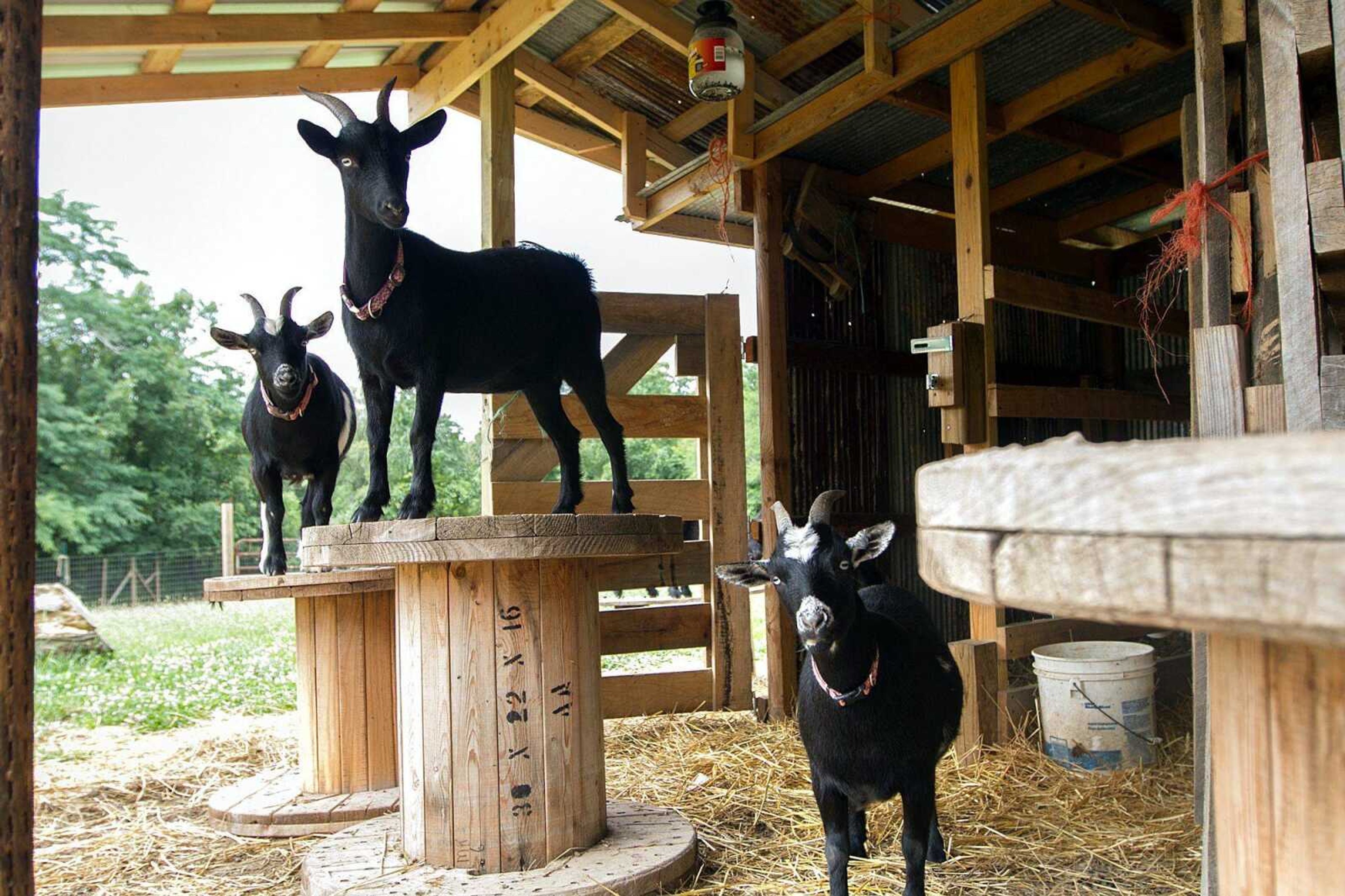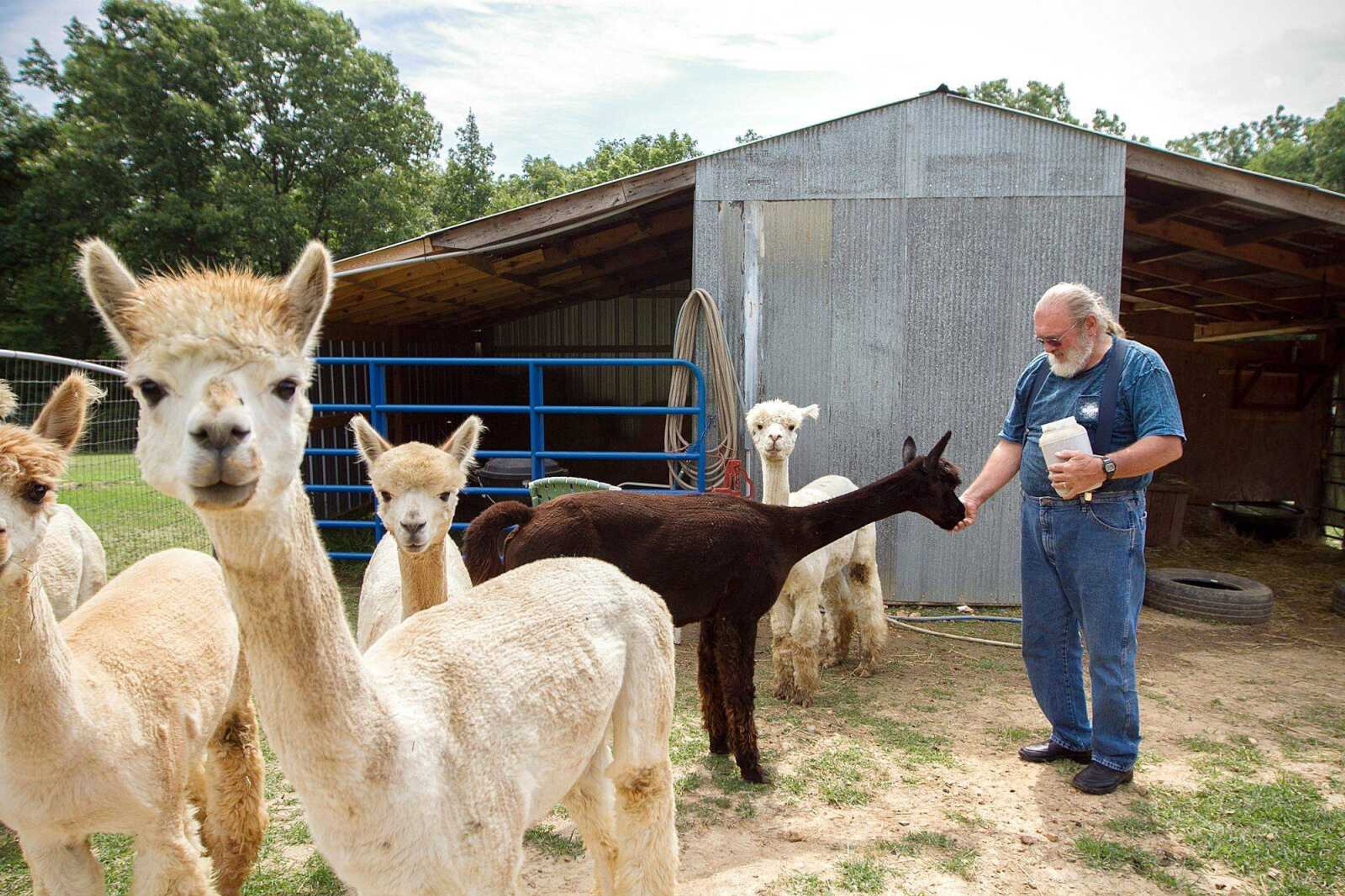Couple finds joy with alpaca, goat farm during retirement
EDITOR'S NOTE: This is the last in a series about local farms and farmers. Jimmy Ward swore up and down that after he retired, he wouldn't have any more animals. Then he married his wife, Jan, and the couple now has 15 goats, 10 alpacas, five dogs and one orange cat named Pumpy living on their 12-acre property in Marble Hill, Missouri...
EDITOR'S NOTE: This is the last in a series about local farms and farmers.
MARBLE HILL, Mo. -- Jimmy Ward swore up and down that after he retired, he wouldn't have any more animals.
Then he married his wife, Jan, and the couple now has 15 goats, 10 alpacas, five dogs and one orange cat named Pumpy living on their 12-acre property in Marble Hill.
It works out because Jan loves the animals and Jimmy likes to build things.

Three Sisters Farm showcases a thriving vegetable, fruit and herb garden -- thanks to "alpaca poo" -- and various fenced structures, shelters for their Huacaya alpacas that don't like the heat, and obstacles for their Nigerian Dwarf goats that love to climb.
The two are retired -- Jan was a teacher for 30 years and Jimmy operated heavy equipment -- and they said their family and friends have a hard time understanding why they would quit one job and start another.
The goats arrived first, a few months after the Wards moved to Southeast Missouri about four years ago. The purpose of the goats was to "clean" areas of the property. But they are more than that to Jan.
"I just love them," she said simply.
The goats became Jan's students after her retirement, Jimmy Ward said, and her affection for her "babies" is noticeable as she spreads treats, kisses and scratches among the black and white goats that adore her.
About a year later, the Wards introduced alpacas to their property. The reasoning behind the decision was no more difficult than, "I thought Jimmy wanted one, and Jimmy thought I wanted one," Jan said.
The couple did their research, asked questions and visited other alpaca farms before beginning their venture with three "girls," two of which were pregnant at the time.
Now with 10 alpacas bobbing up and down their various pastures, Jan Ward said they won't have many more for fear of crowding them.
"Alpaca people are helpful," she said, and the couple is learning about the alpaca market as they go, often attending seminars and classes to increase their knowledge of the animals and the fleece market.
Jan said the alpacas are raised for two reasons: to sell them or to sell their fleece.
The Wards' alpacas are sheared in April, and in late June they sport a short layer of fleece with longer moplike fleece on top.

After the animals are sheared, the Wards send the softest cuts of fleece to The Shepherd's Mill in Kansas, where it is turned into yarn.
The other cuts of fleece are sent off to be felted and stamped out to be used as insoles for shoes that are favored by hunters and diabetics for their warmth, Jan said.
She also makes pillows and fills them with alpaca fibers that make them "super soft."
And not even the alpacas' droppings go to waste. The couple has a booth at the Cape Riverfront Market, where they sell alpaca droppings as fertilizer.
The little projects the Wards take up because of their alpacas, such as the pillows, don't have to be successes, Jan Ward said. If they aren't, the couple has plenty of family and friends to share gifts with, she joked.
There are fewer than five alpaca farms in Cape Girardeau, Bollinger and Perry counties combined, and 146 in Missouri, according to the U.S. Department of Agriculture's 2012 Census of Agriculture.
Though more people are getting into the business of raising alpacas, it is not for everyone, Jan said, especially for those who don't want to clean up after them every day. There also isn't much money in the business, she admitted.
Taking care of the animals is not a chore, Jan said, and her goats and alpacas have helped her through a few tough times -- the alpacas even consoled her after the death of her mother.

She described them as sympathetic, sweet and lovable, traits her husband would agree she possesses as well, describing Jan as a woman with a big heart who is "just full of love." Love that is obviously spread among those inhabiting their small farm.
The couple has no plans to retire from their newfound job, and they plan to keep raising the animals as long as they are able.
Pertinent address:
Marble Hill, MO
Connect with the Southeast Missourian Newsroom:
For corrections to this story or other insights for the editor, click here. To submit a letter to the editor, click here. To learn about the Southeast Missourian’s AI Policy, click here.









